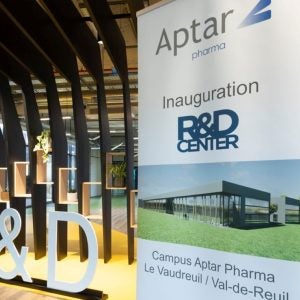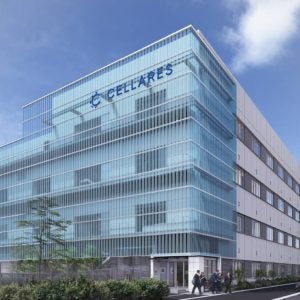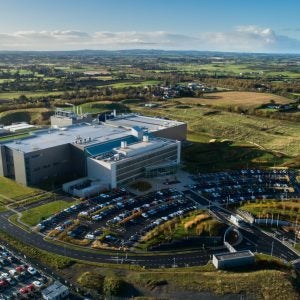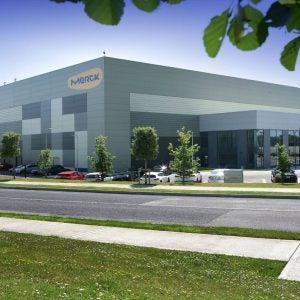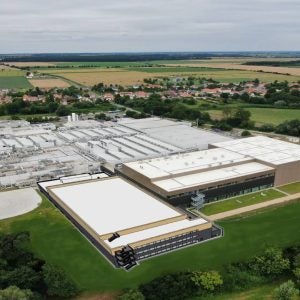GlaxoSmithKline Increases Process Efficiency with Russell Finex’s Vibrasonic Deblinding System
GlaxoSmithKline is improving process efficiency in the production of pharmaceutical powders at its ‘centre of excellence’ plant in Dartford, Kent, following the installation of nine new high-performance vibratory separators fitted with the Vibrasonic® Deblinding System, supplied by Russell Finex of Feltham, Middlesex.
The separators are used by the international actives supply division of GlaxoSmithKline for the manufacture of an extensive range of therapeutic bulk active drugs which are exported all over the world and used in the treatment of Aids, Parkinson’s Disease, migraine and many types of acute pain.
Many of the pharmaceutical powders produced at the plant are difficult to screen efficiently because of mesh blinding and also because they are low density and gain static so instead of passing easily through a conventional separator they tend to float above the mesh, slowing down production and reducing efficiency.
Reducing operating costs
The new Vibrasonic Deblinding System has solved these problems, significantly increasing productivity as well as reducing costs, and meeting their HACCP and due diligence requirements. The separators are used at the final stage of primary manufacture, screening the pharmaceutical powders to the required size before they are sent away for the second manufacturing stage when the powders are made either into tablets or a liquid suspension.
Screening efficiency is enhanced by the Vibrasonic Deblinding System using an acoustically developed transducer, the Probe, to apply an ultrasonic frequency direct to the mesh. This breaks down the surface tension and so eliminates mesh blinding and static, increasing throughput, reducing downtime and improving grading accuracy.
Increasing productivity
The Vibrasonic Deblinding System also gives greater control over the mesh and powder settings to increase throughput of static powders. The strength and duration of the ultrasonic activity can be tailored to suit the particular production run – GlaxoSmithKline uses the pulse facility, the ultrasonic frequency, switching it on and off at pre-set intervals to allow the powder to fall through the screen, instead of floating above it, which maintains a consistently high throughput.
In addition, there are considerable cost savings – the screens last much longer because they don’t need to be dismantled for cleaning or maintenance and because the operator input required during each production run is minimal, labour requirements are also reduced.
A production supervisor at GlaxoSmithKline comments: “The new Vibrasonic Deblinding System works extremely well. It has increased our productivity levels and is a great improvement on the older design of machines that we used before. It gives us much greater control, we can ‘tune’ the Vibrasonic system to the products.”
FDA approved
Russell Finex is able to provide documentation packages for validation including IQs and OQs. These packages, which are the most comprehensive available in the industry, assist pharmaceutical companies in obtaining FDA approval for their processes and plants and are in accordance with GMP requirements, thus saving the customer the time and resources required to validate the equipment.


